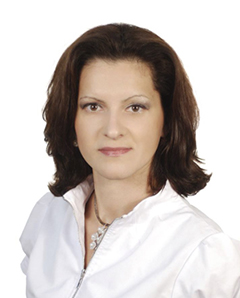Table of Contents
Why seek treatment in Russia?
What makes Russia stand out from other medical destinations?
- According to Russian legislation, it is legal to have egg donation and surrogacy in our country.
- We do not have strict age limitations for the patients, each case is discussed individually by ethic committee.
- Now prices for IVF are lower than in majority of other countries with well-developed medicine.
- High quality medical services.
What are the standards of treatment in Russia?
Standards of treatment in our country are set by Ministry of Health of Russian Federation. Doctors are well trained and each doctor regularly has to proof his/her qualification by passing exams for prolonging license for medical practce.
AltraVita is the first and unique IVF clinic in Russia designed and built specifically for IVF technology in strict accordance with the requirements of the American Society for Reproductive Medicine (ASRM) as well as the European Society of Human Reproduction and Embryology (ESHRE).
Altravita lab is certified by the College of American Pathologists (CAP), which ensures the highest standards of excellence.
Our clinic uses modern equipment and medication, our doctors and embryologists regularly improve their qualification and visit conferencnes related to medicine and embryology.
From which countries do your international patients come? Please specify the country name along with the average percentage of international patients from each country.
Australia 6%
Austria 3%
Burkina Faso 0.5%
Burundi 0.5%
Canada 2%
Chad 0.5%
China 15.5%
Estonia 3%
France 6%
Germany 7%
Great Britain 10%
Israel 14%
Italy 16%
Japan 1%
Mongolia 0.5%
Norway 3%
Oman 0.5%
Poland 2.5%
Qatar 1%
Romania 1%
Serbia 1%
Sudan 0.5%
Sweden 1%
Switzerland 1%
Thailand 0.5%
Turkey 0.5%
Vietnam 1%
USA 1%
Do patients expect treatment to be in their native language?
We provide free English speaking coordinator and we can organize translation service to any language at extra cost.
What percentage of patients from abroad are treated in their native language?
About 30%.
In which languages do you offer treatment to international patients?
English, Russian
Which services/procedures do patients most frequently use in your clinic?
IVF with egg donation, IVF with own eggs, Surrogacy, PGD/PGS.
How long do patients need to wait for donor eggs?
Frozen donor eggs are always available, we have big bank of frozen eggs. There is a waiting list for fresh donor cycle. Depending on chosen donor it is 2-4 months.
By what criteria do patients choose treatment in Russia, as opposed to e.g. The Czech Republic?
- In Russia it is legal to offer infertility treatment to single women
- No maximum age of recipient, each case is considered individually
- AltraVita IVF Clinic is certified by College of American Pathologists, so we are certified not only by European entities, but also by American entities. We meet both European and American standards.
Treatment range
- Do you offer Egg donation? – fresh eggs – Yes
- Do you offer Egg donation? – frozen eggs – Yes
- Do you offer IVF for single woman? – Yes
- Do you offer IVF for same sex parents? – No
- Do you offer Sex selection/family balancing? – if we do PGD 24, we check embryo’s gender
- Do you offer Sperm donation? – Yes
- Do you offer Embryo donation? – Yes
- Do you offer Surrogacy? – Yes
- Do you offer PGS – chromosome screening? – Yes
- Do you offer PGD – single gene diagnosis? – Yes
Costs & success rates
What do you think about the standard price of services provided in your country, in comparison with other countries? (Including neighbouring countries)
At the moment standard price at our country is lower than in European countries and majority of other countries with developed medicine. Though quality level is high.
Is success rate data monitored? By whom?
In AltraVita IVF Clinic success rate data is monitored by Embryologists and Medical Director.
If so, how does this monitoring take place?
Internal monitoring takes place monthly, quarterly and yearly. Also every year we report about this statistic to Russian Association of Human Reproduction and European Society of Human Reproduction and Embryology.
What do you think about treatment success rates in Russia?
Treatment success rates in Russia are at the level of other countries with well-developed medicine.
How do you think success rates might be improved?
First of all, of course, we have to keep up to the newest technologies and use modern and the best medication. We have to use modern embriological mediums and other materials of a good quality.
Generally, to improve success rates such medical fields as immunology and genetics should be developed.
Laws and legislations
What laws regulate IVF treatment? (Please list the applicable acts and laws)
In Russia, IVF treatment is regulated by:
- Federal law #323-F3 “On fundamental healthcare principles in the Russian Federation” (Chapter 6, clause 55)
- Order of Ministry of Health of Russian Federation M3 RF #107n of 30.08.2012 “About arrangements for the use of assisted reproductive treatment, contraindications, and restrictions to its use”
- Family Code of Russian Federation of 29.12.1995 #223-FZ
- Order of Ministry of Health of Russian Federation #556n of 30.10.2012 “About medical service standards in infertility treatment with IVF”
Are there any associations or legislative bodies governing, overseeing or monitoring the quality of IVF clinics?
Yes, the quality of IVF clinics is monitored by:
- Medical license committee;
- Federal Service on Surveillance in Healthcare and Social Development of Russian Federation;
- Ministry of Health of Russian Federation;
- Insurance companies;
- Federal Service on Surveillance for Consumer rights protection and human well-being;
- AltraVita IVF clinic is certified by College of American Pathologists;
Which procedures may be legally performed in your country? (Please specify which are legal and which are not.)
Legal IVF procedures:
- IVF with own eggs for married couples, unmarried couples and single women;
- IVF with fresh and frozen donor eggs for married couples, unmarried couples and single women;
- Surrogacy for married couples, unmarried couples, single women;
- Intrauterine insemination with sperm of husband/partner for married couples and unmarried couples;
- Insemination with donor sperm for married couples, unmarried couples and single women;
- Donor Embryo adoption for married couples, unmarried couples and single women;
- PGD/PGD
Illegal procedures:
- Surrogacy for a single man;
- Surrogacy for male partners;
Are there any legal limitations to treatment? (E.g., a woman’s age, marital status, the maximum number of embryos transferred in one cycle, etc.)
Yes, there are limitations. We can not provide surrogacy treatment for single men, male gay couples and we cannot provide IVF treatment (eggs, embryoss freezing) to the patients who are awaiting sex reassignment surgery.
What laws regulate the donation of eggs? Please specify.
Egg donation is regulated by order of Ministry of Health of Russian Federation M3 RF #107n of 30.08.2012 “About arrangements for the use of assisted reproductive treatment, contraindications, and restrictions to its use” and order of Ministry of Health of Russian Federation #556n of 30.10.2012 “About medical service standards in infertility treatment with IVF”.
What are the rules of egg adoption for patients?
Patients should have indications for egg donation, so we can provide egg donation program to women who cannot use their egg cells. Indications could be: natural menopause, surgical menopause, late reproductive age with failed IVF attempts in the past etc.
Egg donation is indicated when patient cannot receive embryos of good quality with own eggs, or if patient has recurrent implantation failures with own eggs. Genetic factor also can be an indication for egg donation.





